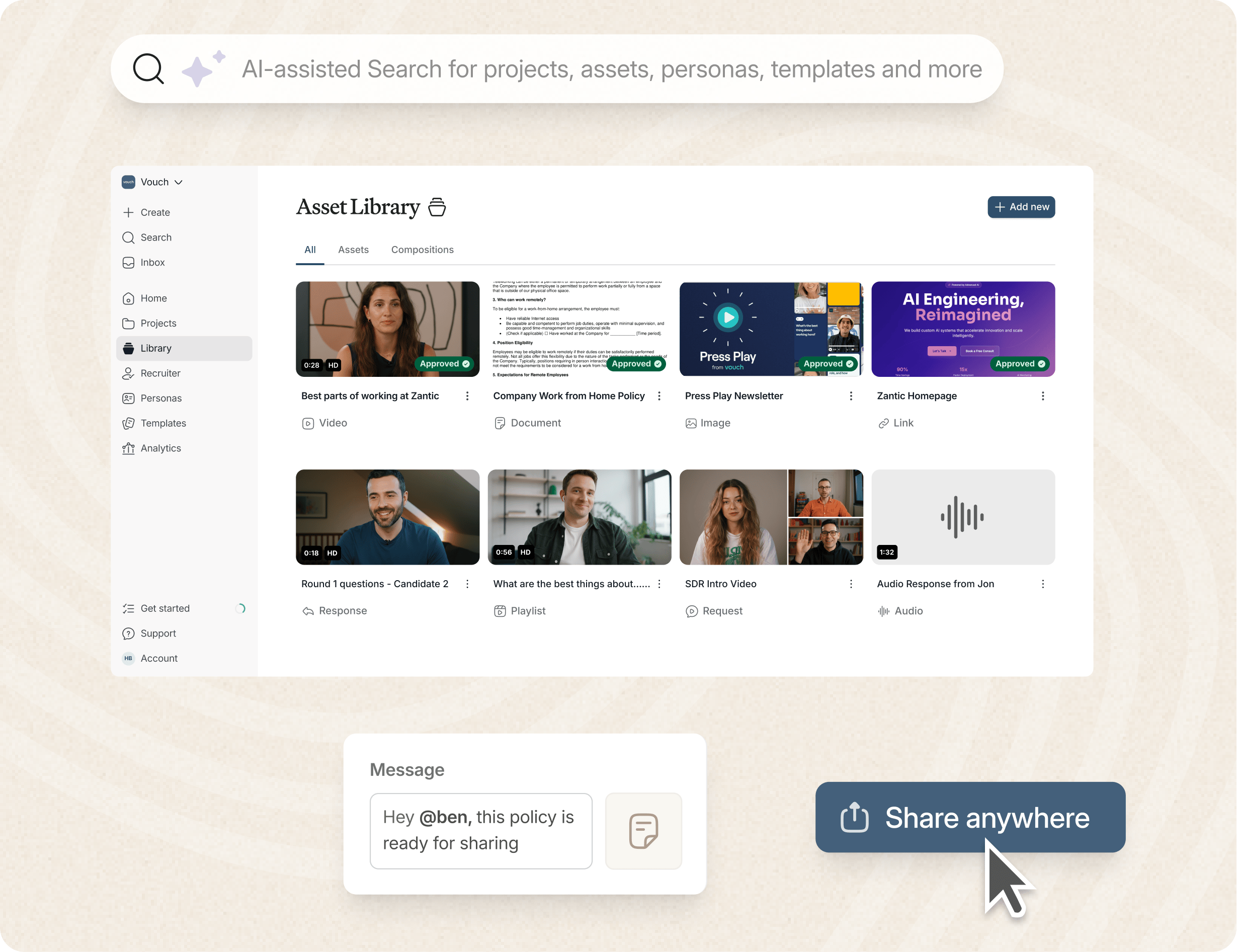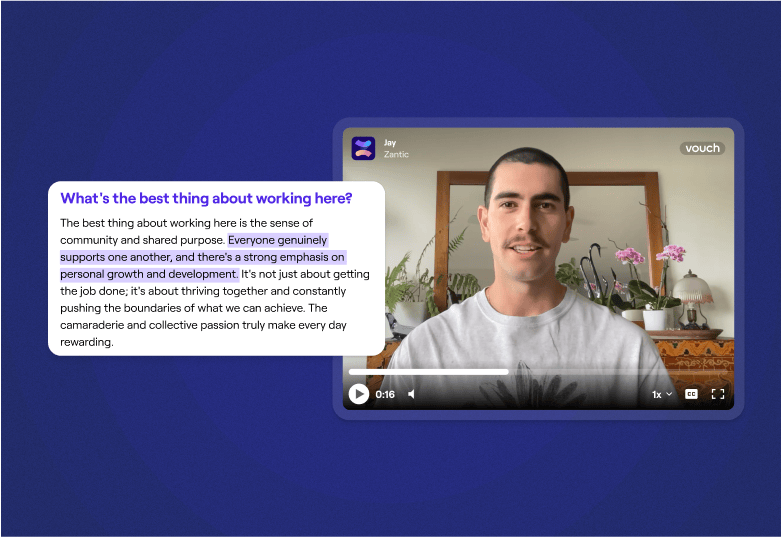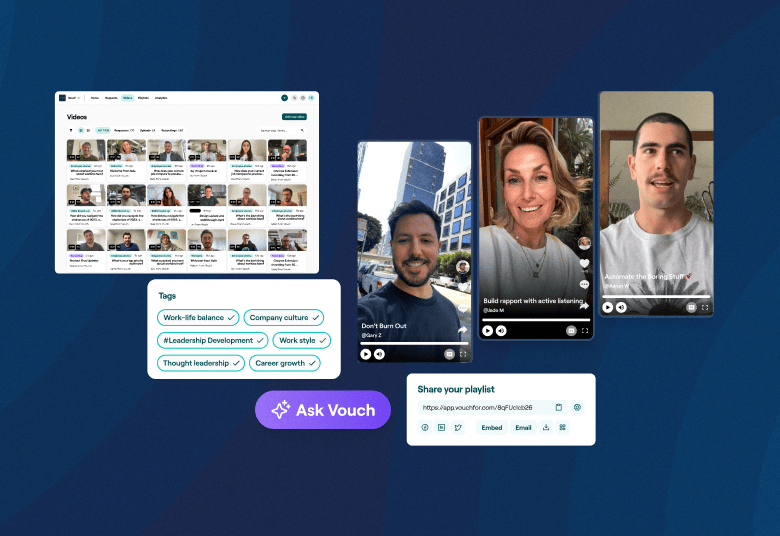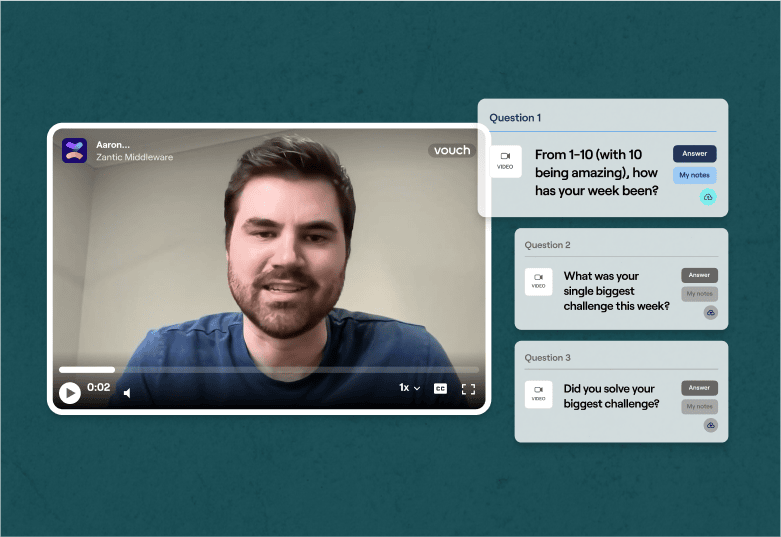In 2026, the role of the Chief People Officer (CPO) has become pivotal in steering larger organizations toward success.
A Chief People Officer transcends traditional human resources functions, focusing on aligning people strategies with business objectives to create a positive workplace culture and employer brand to drive organizational success.
Unlike the traditional Chief Human Resources Officer (CHRO), who may concentrate more on compliance and administrative tasks, the CPO adopts a holistic approach to employee relations, company culture, and leadership development.
Let's dive in.
Key Responsibilities of a Chief People Officer
The CPO's duties are comprehensive and strategically aligned with the organization's goals:
- Talent Management and Succession Planning: Developing strategies to attract, retain, and nurture talent, ensuring a robust pipeline for critical roles.
- Organizational Culture Development: Cultivating a corporate culture that reflects the company's core values and promotes employee engagement.
- Leadership Development: Implementing programs to identify and develop future leaders within the organization.
- Performance Management: Overseeing systems that align employee performance with business objectives, providing continuous feedback and development opportunities.
- Strategic Planning: Collaborating with the executive team to integrate people strategies with business goals, ensuring legal compliance and alignment with industry standards.
The AI-enabled workspace for talent teams.
- Unified workspace for talent teams
- Accelerate hiring with AI tools
- Auto-generate polished hiring and employer brand content
- Easily repurpose assets across all channel

The Evolving Role in 2026
In 2026, the CPO's role has expanded to address emerging business trends:
- Digital Transformation: Leveraging artificial intelligence and data analytics to enhance human resource management and inform strategic initiatives.
- Diversity, Equity, and Inclusion (DE&I): Championing inclusive workplaces by implementing DE&I strategies that foster a sense of empowerment among employees.
- Employee Well-being: Prioritizing employee health through wellness programs and employee assistance programs, contributing to higher employee satisfaction and retention rates.
Technology Used by Chief People Officers
To effectively manage their responsibilities, Chief People Officers leverage various technologies, including:
- Vouch: An AI-driven content platform designed for employer branding and recruitment teams, helping organizations showcase their culture, values, and employee experiences through authentic video content.
- AI-driven HR Analytics: Tools such as Visier and People Analytics help CPOs analyze employee engagement, performance trends, and workforce planning.
- Employee Engagement Platforms: Systems like Lattice and Culture Amp provide real-time feedback, performance tracking, and employee satisfaction insights.
- Talent Acquisition Software: Platforms like Greenhouse and Lever streamline the hiring process, ensuring a seamless experience for candidates and recruiters.
- Learning Management Systems (LMS): Tools like Workday Learning and Cornerstone OnDemand support employee development and career growth through customized training programs.
- HR Automation and Compliance: Software such as BambooHR and Workday automates HR-related policies, compliance tracking, and employee data management.
Skills and Competencies Required
A successful CPO in 2026 possesses a blend of practical skills and interpersonal abilities:
- Emotional Intelligence: Understanding and managing one's own emotions, as well as empathizing with others, to navigate complex interpersonal dynamics.
- Strategic Thinking: Aligning people strategies with business objectives through careful planning and a deep understanding of the business environment.
- Effective Communication: Facilitating open lines of communication across all levels of the organization, ensuring that company-wide communication is clear and effective.
- Business Acumen: Demonstrating a strong grasp of business trends and financial principles to make informed decisions that drive business growth.
Compensation Insights
As of January, the average annual salary for a Chief People Officer in the United States is approximately $350,900, with a typical range between $306,200 and $407,900. (salary.com)
However, salaries can vary based on factors such as location, industry, and company size. For instance, in California, the average annual salary is $387,100, while in New York, it is $409,900. (salary.com, salary.com)
The Strategic Importance of the CPO
The CPO plays a crucial role in aligning human capital with the organization's strategic vision.
By focusing on talent management, building a positive organizational culture, and ensuring compliance with labor laws, the CPO contributes significantly to achieving corporate objectives. This executive-level position is integral to the senior leadership team, influencing decisions that drive the organization's success.
FAQs
What distinguishes a Chief People Officer from a Chief Human Resources Officer?
While both roles focus on managing an organization's human resources, the CPO adopts a more strategic and holistic approach, emphasizing alignment with business objectives and fostering company culture.
What qualifications are typically required for a Chief People Officer?
A bachelor's degree in human resources, business administration, or a related field is common, often accompanied by advanced degrees or certifications and extensive experience in senior HR roles.
How does a Chief People Officer contribute to business strategy?
By aligning people strategies with business goals, the CPO ensures that talent management and organizational development initiatives support the company's strategic vision.
What industries employ Chief People Officers?
CPOs are found across various industries, including technology, healthcare, finance, and manufacturing, reflecting the universal importance of effective human capital management.
How has the role of the Chief People Officer evolved over time?
The role has shifted from traditional HR functions to a strategic leadership position, focusing on aligning human capital with business objectives and fostering a positive organizational culture.
What is the average salary for a Chief People Officer in 2026?
The average annual salary for a CPO in the United States is approximately $350,900, though this can vary based on location and industry. (salary.com)
What are the key challenges faced by Chief People Officers today?
CPOs navigate challenges such as digital transformation, maintaining employee engagement in hybrid work environments, and implementing effective diversity and inclusion initiatives.In conclusion, the Chief People Officer in 2026 is a strategic leader essential to aligning human capital with business objectives, driving overall success.
See Why CPOs Love Vouch!
Loved by companies Canva, Nike, Cisco, HubSpot, Amazon and more, Vouch helps you attract and retain invaluable top talent.
Just click here to get your personal demo and start securing top talent today.
You might also like

Elevate Your Brand Today With Vouch
Discover how Vouch can accelerate talent acquisition while helping you stay on-brand.






